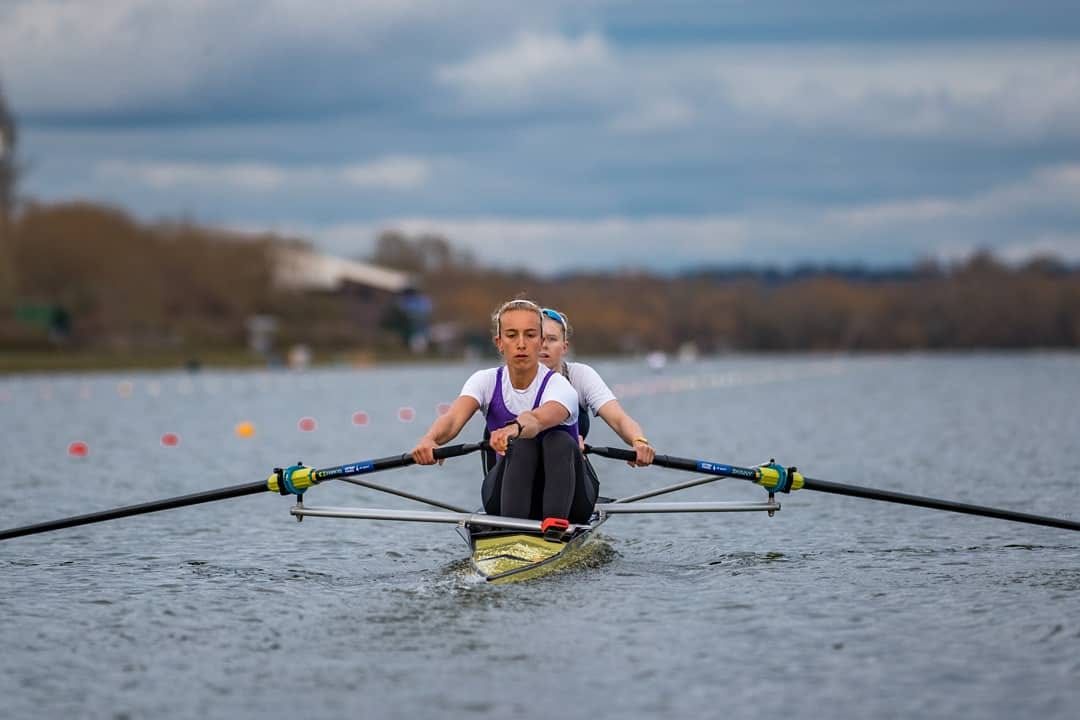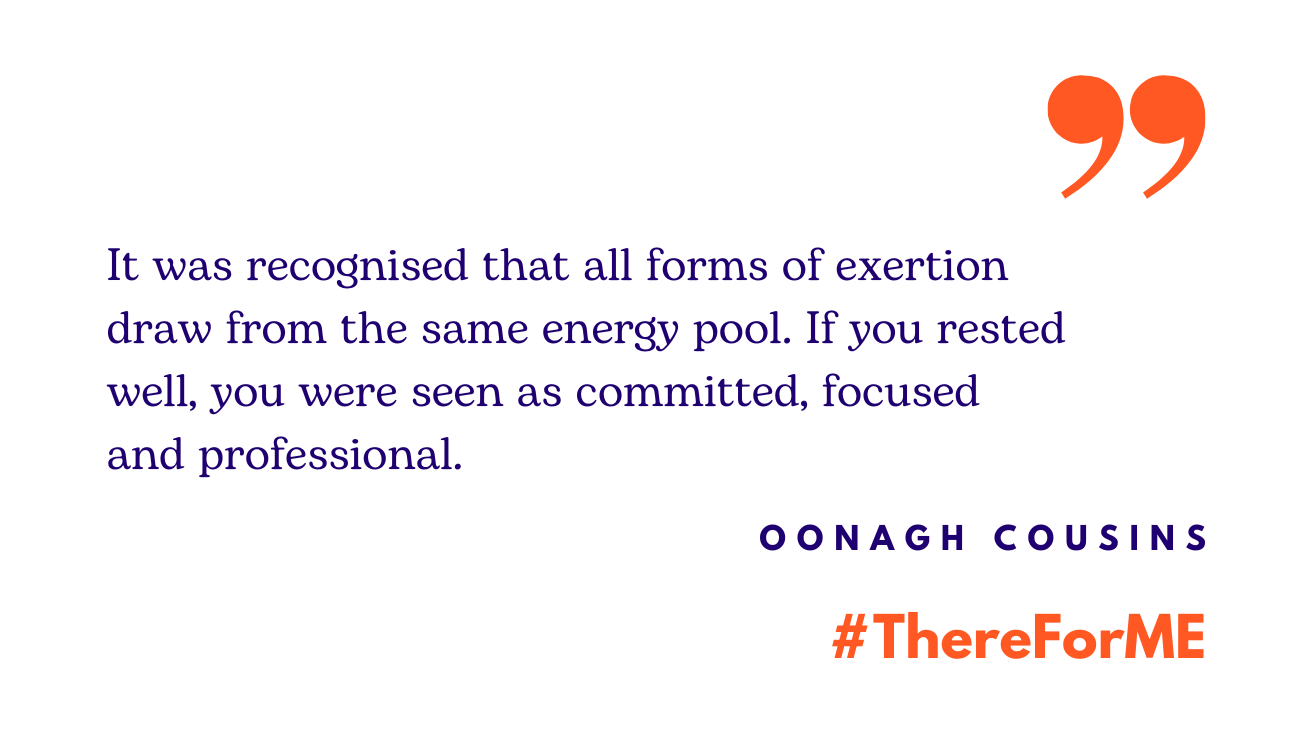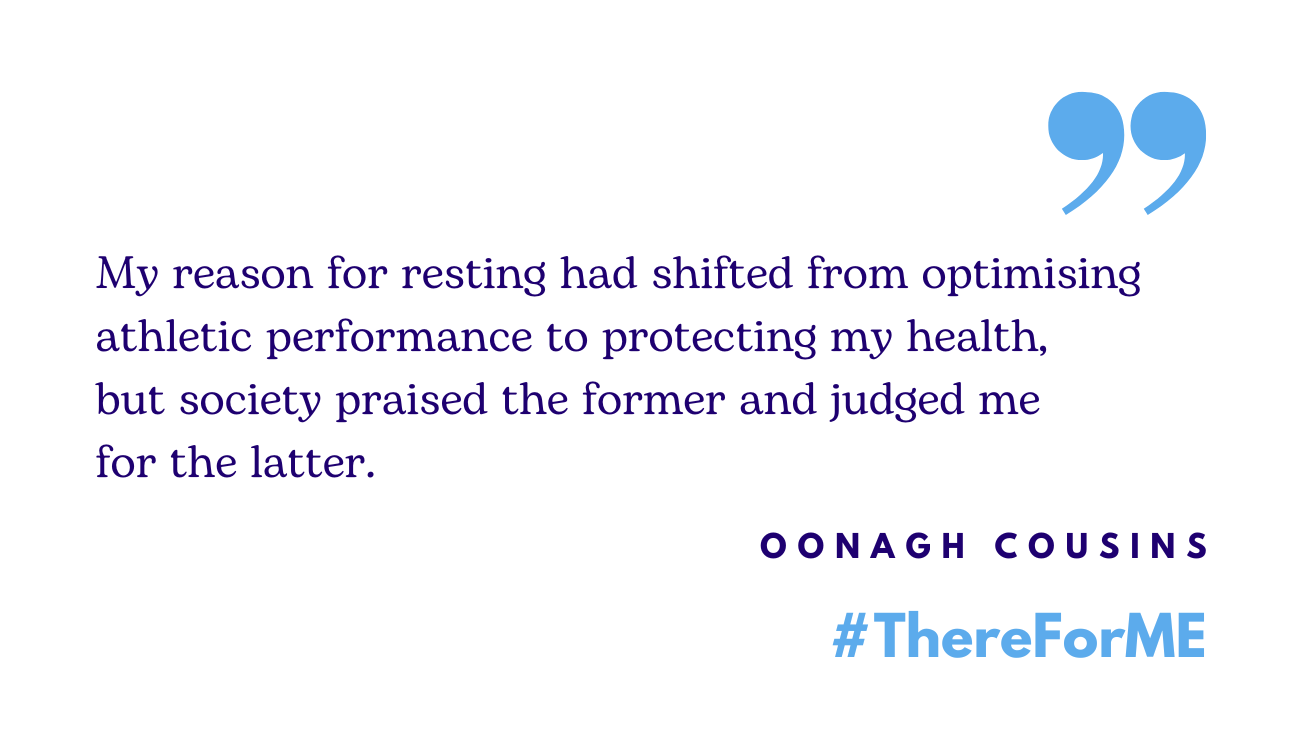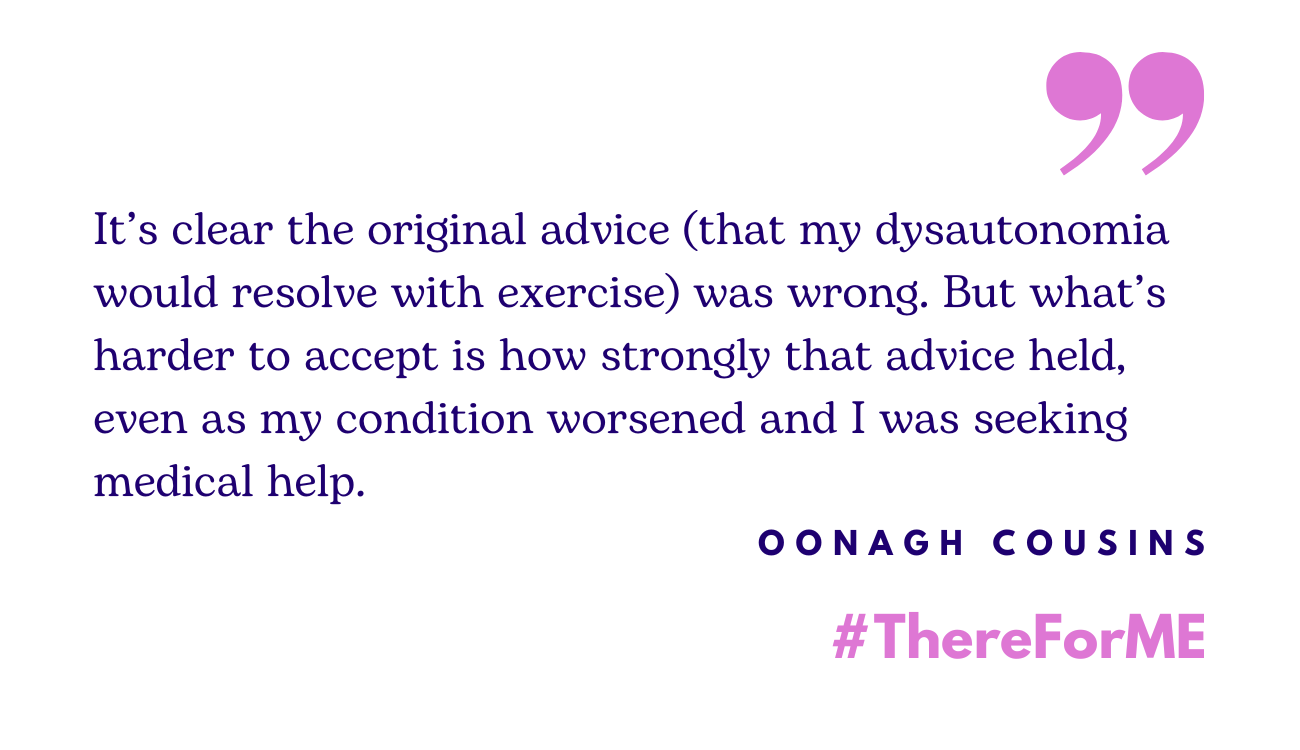The importance of understanding rest
How my experience of rest as an athlete clashed with my experience of rest as a patient
Today’s post is from our very own Oonagh Cousins, a member of the #ThereForME HQ team. Oonagh is a former professional athlete with the British Rowing team and was pre-selected for the Tokyo Olympics before her career was cut short by Long Covid, which she contracted in March 2020. After nearly three years of attempting to recover and return to elite sport, she made the decision to retire at the end of 2022. Since then, she has focused her efforts in the Long Covid and ME space – working at the charity Long Covid Support, as part of a social science research team at the University of Oxford, and in the #ThereForME team.
For years, prevailing attitudes toward rest in the context of ME have caused profound and lasting harm. The former NICE guidelines endorsed Graded Exercise Therapy (GET), based on discredited science that suggested gradually increasing activity would lead to recovery. This approach has repeatedly been shown to lead to significant deterioration – worsening symptoms and deepening disability. Its harmful legacy continues to shape responses to Long Covid, with similarly damaging consequences. In this context, it is vital that rest is properly understood, not only for those living with ME and Long Covid, but also for clinicians, policymakers, and the wider public. This blog is one contribution to that much-needed shift.

Rest as a professional athlete
As a professional athlete, I came to understand that recovery is the foundation of all training gains. Exercise imposes stress on the body, and it’s only during recovery that repair and adaptations occur, driving improvements in fitness. Without adequate recovery, exercise simply wears the body down, leading to injuries, sickness and performance plateaus. Recovery isn’t an optional extra; it’s an essential part of the process.
Everyone in the high-performance environment understood this. Coaches regularly reminded us to “recover hard”. That meant prioritising rest in all its forms – not just physical, but also mental, emotional, and social. It was recognised that all forms of exertion draw from the same energy pool. If you rested well, you were seen as committed, focused and professional.
Rest as a patient
I caught Covid in March 2020, which developed into ME. My capacity for normal life evaporated, replaced by post-exertional malaise (PEM) – a debilitating worsening of symptoms triggered when an invisible threshold of exertion was crossed.
My approach to managing the condition became "aggressive rest". I rationed basic tasks and spent several hours lying down each day. Initially, this strategy was instinctive: based on what I had learnt in sport, rest felt like my best opportunity for recovery. Over time, this proved correct: my health began to improve, albeit painstakingly slowly.
I was lucky to have doctors who took my illness seriously and never trivialised my experiences: a reality tragically rare for many with ME and Long Covid. Nonetheless, there was little in the way of treatment available, and rest and pacing were never recommended to me. So, despite medical support, I was left to manage my recovery largely through the skills I’d developed in sport: listening to my body, respecting its limits, and adjusting accordingly.
I was fortunate in many ways: my form of ME responded to rest, British Rowing continued to support me financially and provided access to private healthcare; and I had no external demands on my time apart from looking after myself.
Still, emotionally it was brutal. I grieved for my previous life: my routines, my social world, the career trajectory I had worked towards for years. There was no timeline for when, or even if, my health would return. I remember the raw, aching desire to live life again, the pain of losing yet another day, and the effort it took not to be pulled under by the sadness.
The social understanding of rest
One unexpected aspect of my illness was the discomfort others felt about my need to rest. Although my sporting background provided me with credibility and protected me from the worst of the stigma, I still felt a persistent awkwardness around my condition and a disbelief at how much time I had to spend doing nothing. Friends stopped asking how I was or changed the subject. I found myself repeatedly explaining why I cancelled plans or couldn’t do things as I used to. There was a subtle but persistent pressure to “rally”. The gap between what I was living and what others could comfortably acknowledge was deeply isolating. Over time, friendships faded through quiet, mutual drift.
The contrast with my experience of sport was stark. Previously, an ability to rest and do less had marked me as disciplined. Now, similar behaviour, such as staying home, conserving energy and prioritising recovery, was perceived as a lack of effort. My reason for resting had shifted from optimising athletic performance to protecting my health, but society praised the former and judged me for the latter.
A further lesson in rest
After 18 months of “aggressive rest”, I started to feel like myself again. By summer 2021, the PEM had gone, and I was once more in training – gradually increasing sessions and rebuilding fitness. Early in that process, I realised I still had mild dysautonomia (a nervous system disorder that disrupts autonomic body processes), but doctors assured me it would resolve itself with exercise. For a while this seemed correct.
Then in September 2022, I rejoined the GB rowing team and my training load stepped up. Immediately, my health began to unravel. My nervous system was stuck in overdrive. During that autumn I saw more doctors, but none of them questioned whether the training might be the problem. Instead, they focused on managing symptoms with medication, and didn’t advise rest. My GB coaches, following medical guidance and lacking understanding of Long Covid/ME, didn’t intervene.
Looking back, I should have stopped listening to the doctors earlier. But after nearly three years of recovery and rebuilding to return to the GB squad following my illness, the idea that it could all be ending, just as I had made it back, was more than I could process. So I held on to the hope that they were right, and that I could still keep going.
In the end, it was a conversation with an old coach, from my club before I joined the GB team, that helped me finally hear what my body had been trying to tell me. Drawing on his understanding of the body from years in sport, he didn’t need a diagnosis or a doctor’s report – he just listened as I described how I was feeling. And to him, it was obvious: I needed to rest. I took his advice and stopped training. I had known I was still managing dysautonomia, but I believed I’d recovered from PEM and mast cell issues. In the relapse, all of them had returned - and significantly worsened, though the PEM presented in a very different form. Not long after, I made the decision to retire from professional sport.
It’s clear the original advice (that my dysautonomia would resolve with exercise) was wrong. But what’s harder to accept is how strongly that advice held, even as my condition worsened and I was seeking medical help. I think of myself in those months, sitting in doctors’ offices, struggling just to function, and still, no-one questioned whether I should keep training. It revealed a profound misunderstanding of what it means to care for a body in distress, something my coach, through sport, had instinctively understood.
A cultural shift needed
People with Long Covid and ME don’t need sympathy – they need a cultural shift.
In sport, rest is rightly understood as fundamental to recovery. But in medicine, rest is too often dismissed or overlooked as a legitimate, evidence-based response. In society, prolonged rest is rarely granted the respect it deserves. In a culture obsessed with productivity and achievement, choosing to rest is one of the most proactive and courageous acts a person can make.
This cultural dismissal of rest is especially harmful to people with ME or Long Covid, who must often rest for prolonged or indefinite periods. They face not only the impact of their condition, but also repeatedly justifying their need to adapt. Amid all this, the emotional cost of rest is almost entirely overlooked. To rest in the context of chronic illness demands the endurance of immense grief.
Come the next Olympics, we will celebrate the medalists for their extraordinary performances. But let’s also create space to honour something much less visible, yet no less demanding, disciplined, or full of sacrifice: the work of rest for those with chronic illness.






So true. I am a former long distance runner (very amateur!) and through that I have experience in how to train a healthy body both through pushing my body the right way and right amount, and through how important rest and recovery is. But I never appreciated how much that part of operating at a high physical level is openly valued in professional sport - so interesting. Very recently a fellow ME person started an online group to support us resting together - @thepacingclub on Instagram - and we’re using Forest app and each other to encourage and support us to rest. One fascinating thing is the ‘rest rankings’ - in our Forest friends group we can see who has rested most each day - who are the sickest and the ones who most need more rest that day - and of course Forest gives a crown for the top rester.. I’m not one for league tables but I love how this turns on its head the normal societal attitude to rest being not a good thing, and instead rewards the ones who’ve rested most. In this club we all know just how hard resting is.
"The work of rest" may sound like a paradox but its true, resting is the right thing to do when you have this kind of condition and a difficult adjustment to make. This approach deserves recognition and needs to be respected by and integrated into received medical wisdom on viral recovery, so that everyone who encounters this misfortune gets the best advice for their own recovery to support their best sustainable levels of activity and quality of life in the future. If I have a life goal after 38 years of viral ME, it is to see this happen so the next generation of patients are not harmed by neglect the way mine was and then we can take the next steps towards finding cures, one by one.